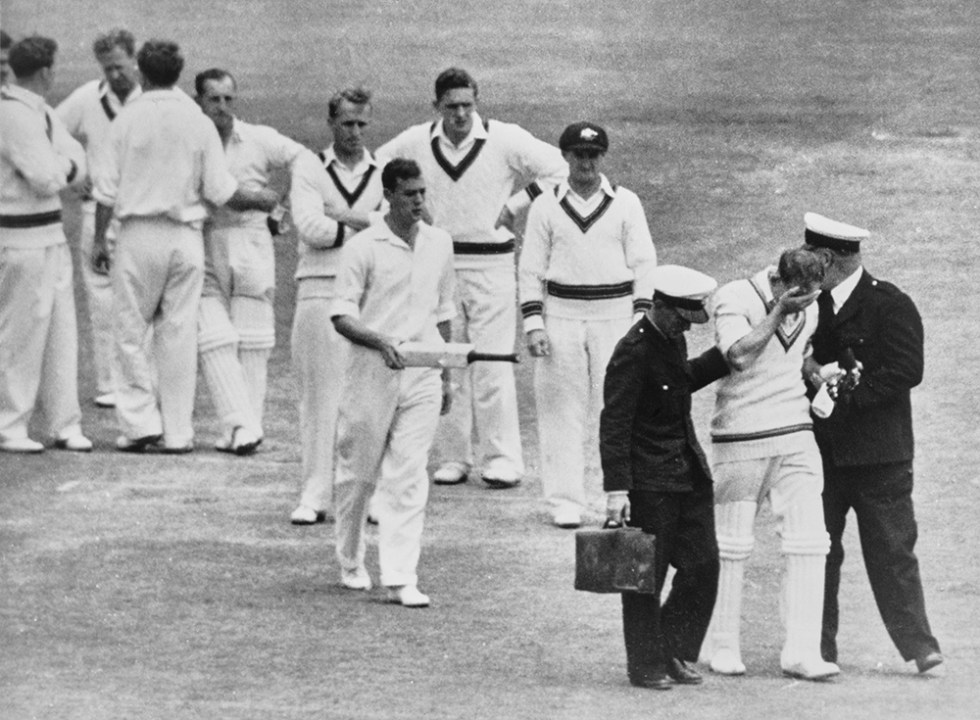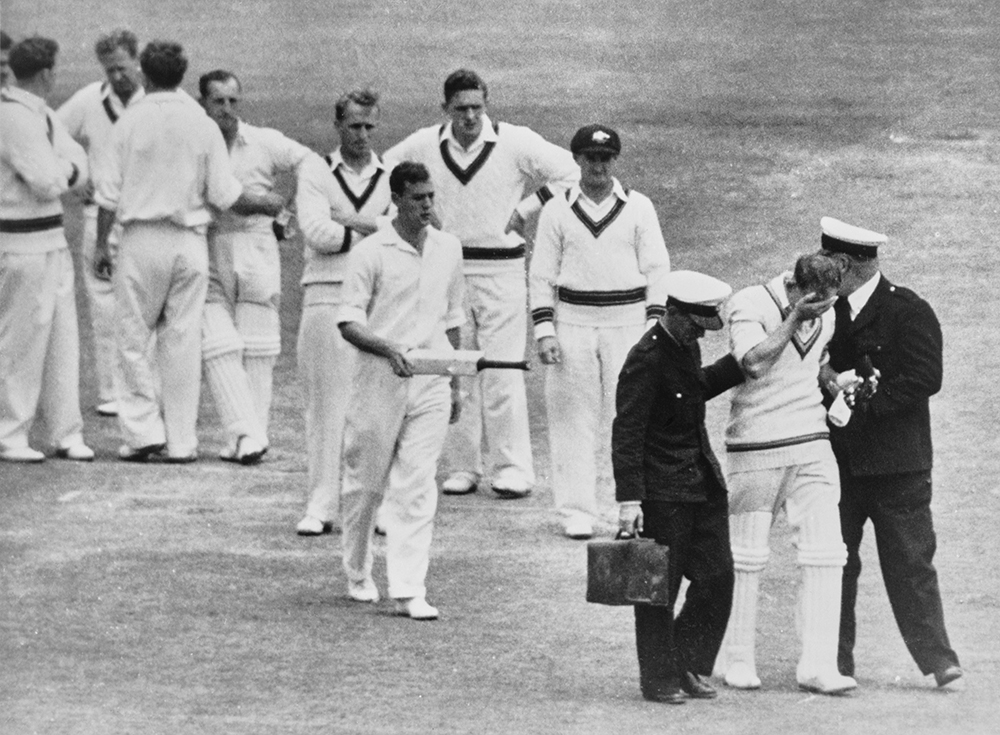
Lord Hawke, the grand old man of Yorkshire cricket and stalwart of the MCC, was not one to mince words. A century ago, the administrator rejected calls for the national XI to be led by Jack Hobbs. ‘Pray God no professional shall ever captain England,’ Hawke said. ‘We have always had an amateur skipper and when the day comes when we shall have no more amateurs captaining England it will be a thousand pities.’ It took 27 years.
Elizabeth II would be less picky about commoners. She knighted Hobbs in her Coronation honours in 1953, the same year that Len Hutton, England’s first professional captain, led the side to regain the Ashes after 20 years. To defend the urn Down Under, however, as he hoped to do in 1954-55, was a hard task.
‘The grounds are hard, the ball is hard and the men are hard,’ Hutton said. ‘You need to be harder than they are to beat them.’ It no longer takes three weeks to get there by boat and the tour is a lot shorter than Hutton’s six months, but it still remains a slog: England go to Australia this winter having lost 13 of their past 15 Tests there. Hutton, who had been in the ranks for two thumping defeats, likened it to water pistols against Tommy guns.
If winning the Ashes in Australia is difficult, doing so after being thrashed in the opening Test is even tougher. There were some at Lord’s who had not wanted Hutton as captain, and not just because he took a salary. At 38, his batting powers were fading and he was racked by doubt. He rashly put Australia in to bat at the first Test in Brisbane and they made 601 for eight. England, who dropped 12 catches, failed twice and the match was gone. Geoffrey Howard, the tour manager, visited Australia’s dressing-room and found them in cocksure mood. ‘I hope I don’t have to do that again,’ he told Hutton. He didn’t.
Many felt Hutton was not leading his strongest squad. Fred Trueman, the fiery fast bowler from the West Riding, was dropped for being difficult on a tour of the West Indies, provoking anger even from Lancastrians. There are some gloriously cross letters in the MCC archive. ‘What are we looking for to retain the Ashes?,’ asked M.W. Whiteley of Warrington. ‘Nice little gentlemen with polished manners and Oxford accents or men who get the wickets and make the runs even if they are a bit rugged?’ Mr Grace from Preston thought that ‘snobbishness prevailed’ in rejecting Trueman, a miner. An unsigned correspondent merely said: ‘May you parentless swine go to blazes.’
In Trueman’s place, the selectors chose the callow Frank Tyson, an English graduate from Durham University who liked to recite Wordsworth as he walked to his mark, and Colin Cowdrey, an uncapped batsman freshly graduated from Oxford. Both justified selection. Cowdrey turned the second Test in Sydney with a century stand with Peter May. Then Australia’s Ray Lindwall made the mistake of making Tyson angry. ‘My God, Lindy, you’ve killed him,’ cried Bill Edrich after the fast bowler struck Tyson on the back of his unhelmeted skull while batting. Australians claimed it was a relatively slow bouncer – ‘He played three shots before it hit him,’ Arthur Morris said – but Tyson slipped in and out of consciousness and was helped off the field to be X-rayed. When he returned, Hutton detected a new light in his eyes.
Fortified by a mixture of sherry and eggs, this bookish bowler turned into the beast they called Typhoon Tyson. At Sydney he took six wickets for 85 as England overcame a big first innings deficit; in the third Test at Melbourne he took seven for 27, the best figures by an England fast bowler in an Ashes Test since 1897. At Adelaide, Australia were blown away again by the Typhoon, collapsing to 111 all out, and the Ashes were retained.
Richard Whitehead, formerly of the Times and Wisden, plays a fine innings in telling this extraordinary story. It is well researched and merits comparison with Bodyline Autopsy, David Frith’s 2003 book on the 1932-33 Ashes. White-head also has an excellent eye for colourful trivia. We learn that Walter Robins, an MCC grandee who tried to remove Hutton, was once thrown off a golf course by Enid Blyton; that Morris, after making 153 in the first Test, was called for jury service but let off by the judge who felt that beating England mattered more; and that Tom Graveney lost his place as Gloucestershire captain to a man who had auditioned to play James Bond.
As England neared their target to win the Ashes in Adelaide, a smile suddenly broke out on Hutton’s normally taciturn face. ‘I wish that bugger Hawke were here to see this,’ he said. When he returned victorious to Tilbury, the MCC secretary gave him a club tie as a new, accepted member, the first professional to have such an honour. Though their generosity only went so far: it turned out that the tie was second-hand.








Comments